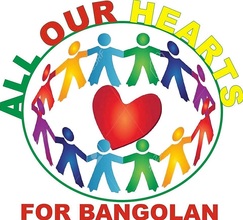 SUMMARY Cameroon is generally considered a peaceful and stable nation in comparison to her neighbours. However, closer scrutiny exposes a high record of intra-ethnic conflicts and inter-ethnic wars which manifests as political, economic, environmental conflicts, battles over natural resources between farmers and graziers, as well as land, boundary and territorial clashes between villages. While the international community continues to erroneously appreciate the general picture, these recurrent tribal wars and conflicts are taking a devastating tool on the lives of human beings relegated to the margins of existence. The North West Region is a hot bed for most of these conflicts and wars and several studies show that political warlords use conflicts as means of fanning flames of division for personal political ambition. In July 2016, the Ngoketunjia Young Elites (NGOYE) and the Kencholia International Foundation (KIF), in partnership with the Center for Disaster and Emergency Management Studies at St. Lawrence University Ngoketunjia commissioned this report on the on-going chieftaincy crisis in Bangola. Shocked by the degrading situation of displaced families, the arbitrary arrests of young people, and the abuse of human rights by forces of the Rapid Intervention Unit (BIR) as well as the apparent lack of humanitarian and medical assistance at any level, these organizations requested an urgent comprehensive report which could be used as a blueprint for intervention and assistance. Bangolan is one of the 13 Villages that make up the Ngoketunjia Division (Ndop plains) of the North West Region of Cameroon. It is located in the Babessi Subdivision and has a population of about 20.000 people. In February 2016, the people of Bangolan witnessed a distressing turn of events as several families lose their homes, their property, their family members, and friends in the midst of a chieftaincy crisis. The psycho-social and economic impacts are profound as the people continue to wonder how they got into this and how soon the government is going to take definitive steps to put an end to the crisis. It is important to note that the crisis is affecting other areas surrounding Bangolan and has the potential of inspiring similar conflicts and crises in other villages in Ngoketunjia. The Bangolan Chieftaincy crisis which attracted public attention in February with the dethronement of Fon Chafah and the enthronement of Fon Salim is an on-going conflict which has had severe consequences on the life of the community and the neighboring villages. In a little less than 6 months, the crisis has transformed the peaceful and loving village of Bangolan into a chaotic scene with thousands of affected people. Most Bangolan people are still processing the shock of witnessing the on-going destruction and devastation of homes, neighborhoods and personal property. The response of the administration has been limited to the deployment of forces of law and order who have been accused of perpetrating varied forms of human rights abuse. There has been little or no humanitarian assistance and thousands of children, women, and elderly affected by the crises have been abandoned to fend for themselves in the midst of tight security and a disrupted social order. Although Bangolan is in serious need for assistance in emergency shelter, healthcare, food security and public/personal safety, there has been little or no response from the government, non-governmental, religious or cultural organizations. The purpose of this report is to provide comprehensive information on the crisis and its effects on the people of Bangolan. It provides an overview of the crises, and analyzes its possible causes based on information collected from interviews, news media reports, eyewitness accounts, and official Memos. It also examines the effects of the crisis on the Bangolan Community and makes recommendations on what steps need to be taken immediately to provide assistance to the affected villagers while preventing such crisis in future. It ends with a financial assessment of the destruction caused by the crisis on individuals and the community. Consequent on the fact that the crisis is still on-going and requires careful consideration of facts, every attempt has been made to avoid any form of bias. The report draws information from multiple media sources, interviews, eyewitness accounts and data collected by NGOYE Team on the field. These sources were carefully screened for possible biases, and in most instances only verifiable facts have been used. Oscar C. Labang, Ph.D. St. Lawrence University, Ngoketunjia Read Complete Report Here PDF Send comments, questions and feedback to bangolancrisis@yahoo.com
4 Comments
|
ABOUT St Lawrence |
SchoolS & COLLEGESSchool of Business
School of Education School of Engineering School of Medical Sciences American Institute of Cameroon Petrochemical Engr. Academy College of Agriculture Teacher Training College |
Academics |
SLU Online |
ST LAWRENCE UNIVERSITY, Cameroon
Copyright (c) 2014 St Lawrence University | Privacy Policy Statement | Disclaimer |

 RSS Feed
RSS Feed